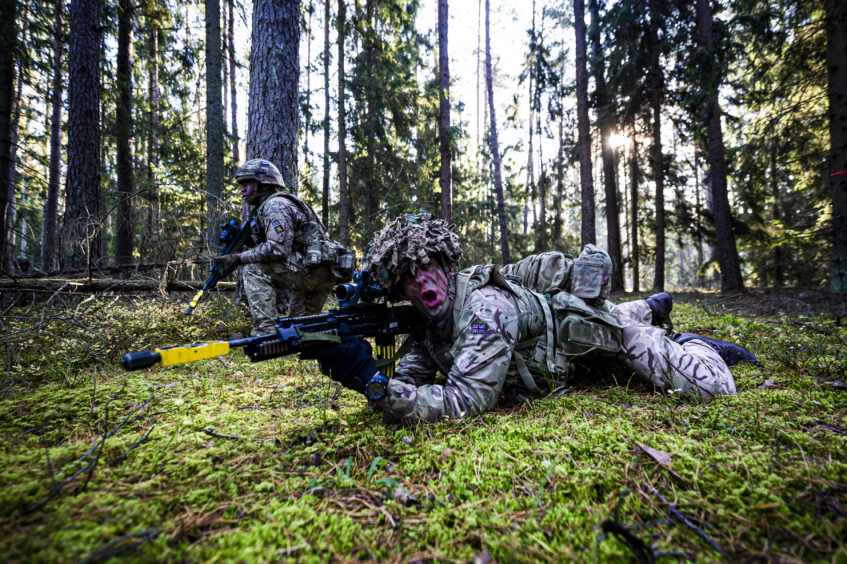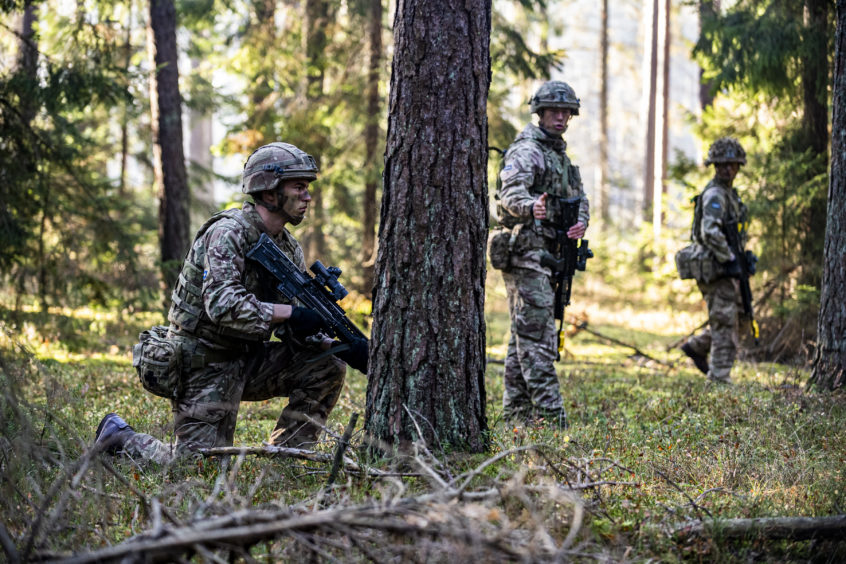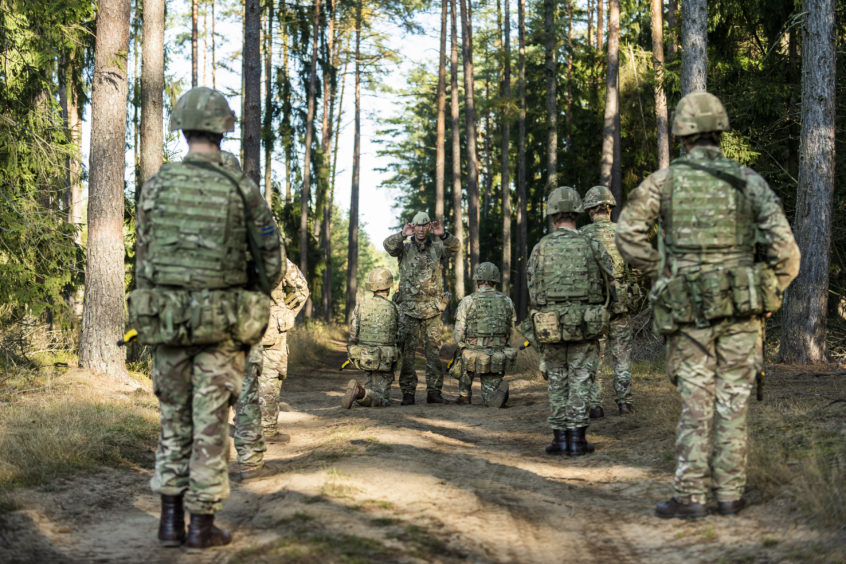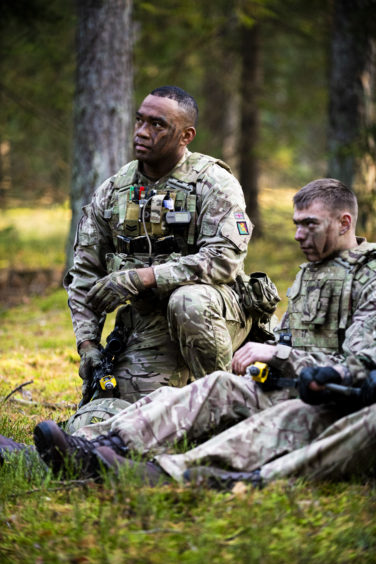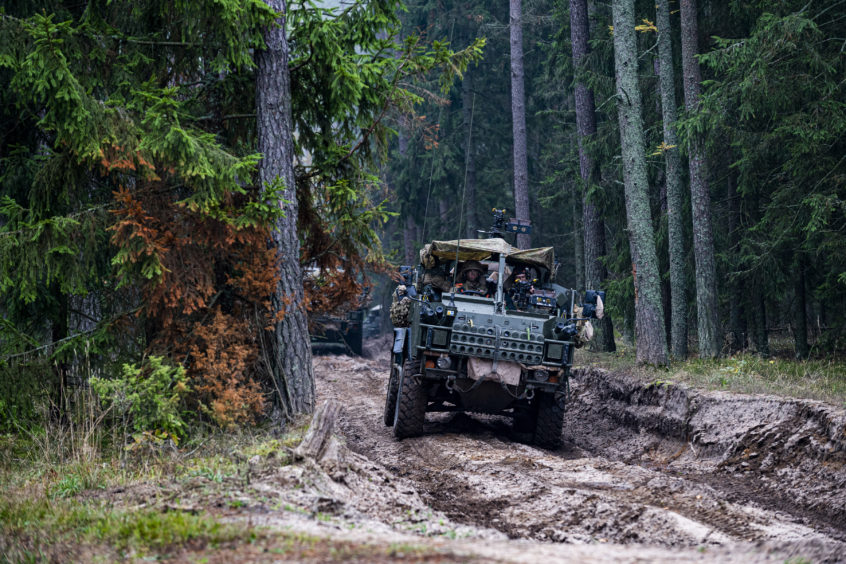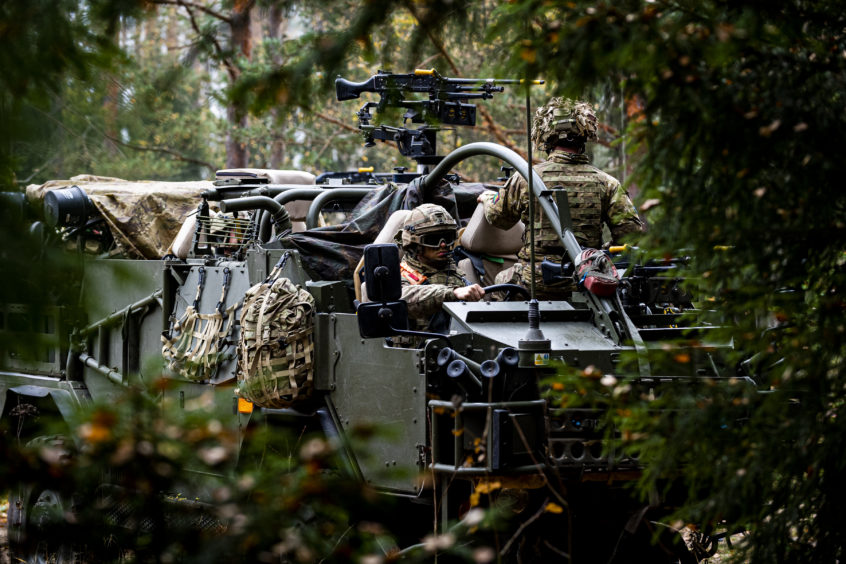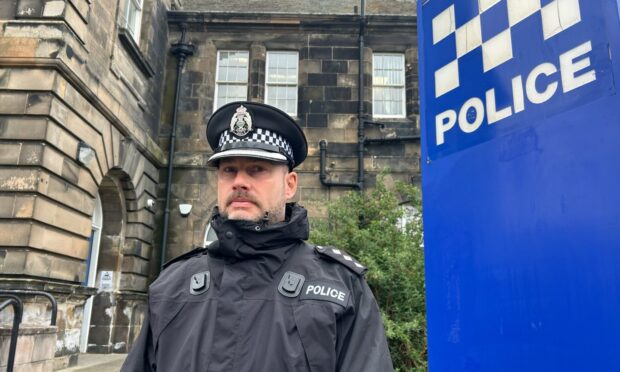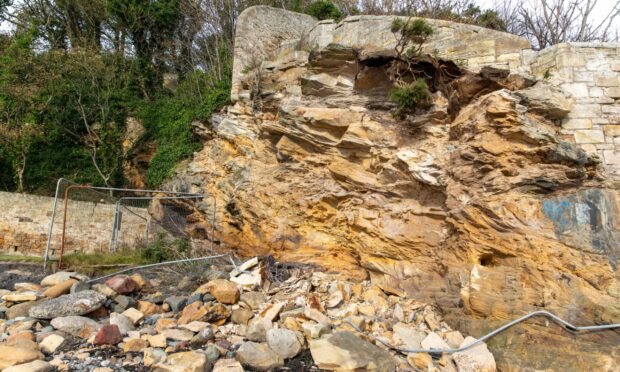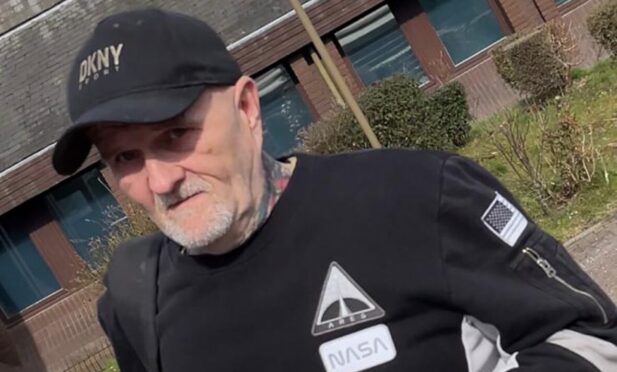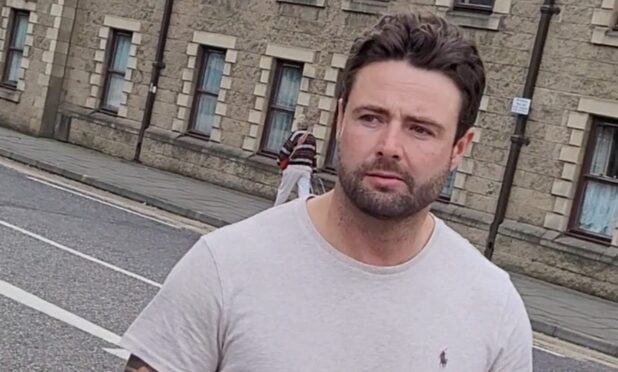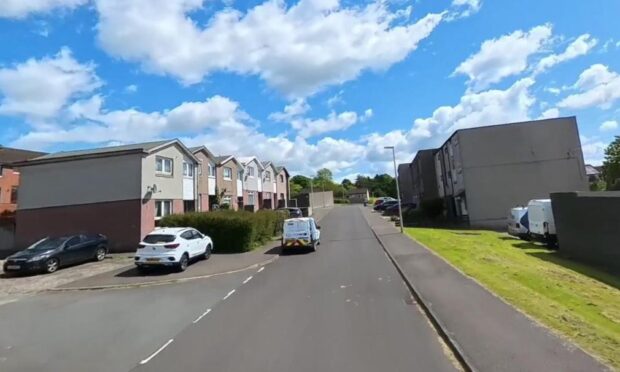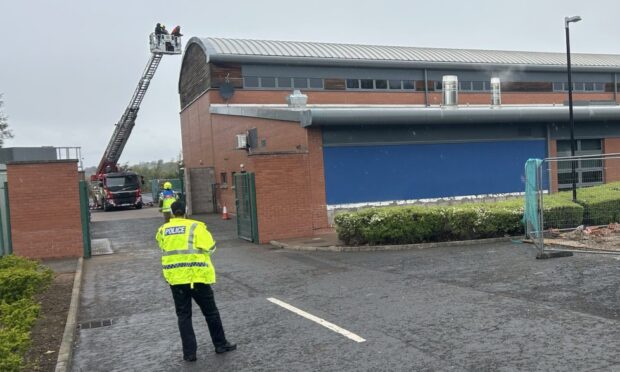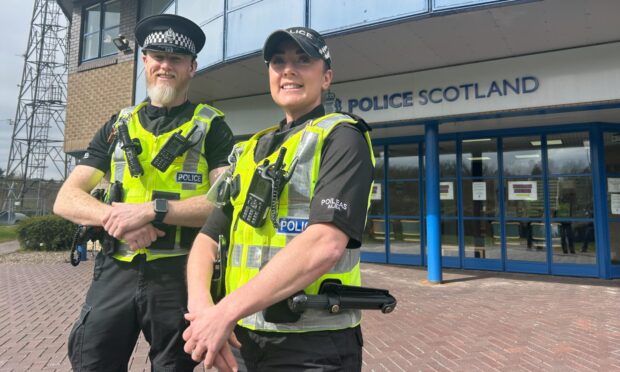As the sun filters through the trees, dappling the ground the woods in Eastern Poland are silent.
Two files of camouflaged soldiers slowly walk into view, talking quietly as they move forward. Suddenly a machine gun begins firing and the troops drop out of sight with the shout of ‘contact right’.
The soldiers re-orient themselves to the new threat – the corporal in charge assesses the situation and works out a plan.
They then go on to outflank and silence the enemy position with a quick and loud assault using smoke and high explosive grenades.
From first contact to successful capture of the position takes less than 20 minutes with the soldiers having to react to and silence a secondary position and deal with one of their team becoming a casualty.
This time the battle was only simulated and allows the junior soldiers to experience the noise and confusion of battle as a team, going over skills and routines learnt in basic training and exercises in the UK.
Five minutes later the soldiers are relaxing in a loose circle, discussing the recent engagement.
Mistakes made are highlighted and successful actions taken highlighted, all in a positive and developmental context.
Senior ranks, officer observers and the revived enemy soldiers contribute to the revision…
With all eyes on mounting tensions in the Middle East, members of the Royal Scots Dragoon Guards (SCOTS DG) based at Leuchars have been deployed to Poland as part of the UK’s commitment to NATO’s security presence in Eastern Europe.
Ninety-five SCOTS DG soldiers are working alongside American forces on Operation Cabrit to provide NATO’s Enhanced Forward Presence battlegroup with reconnaissance capability.
The six-month junior soldier-led training deployment that began before Christmas will develop into action involving the whole multinational battlegroup and its full range of military equipment including tanks, armoured fighting vehicles and artillery.
Major Alex Jackson, C Sqn SCOTS DG, explained that whereas UK soldiers provide the majority of NATO forward presence troops in Estonia, members of the Leuchars regiment have been deployed for training in Poland as part of a light cavalry squadron group, integrated with the Americans.
“The soldiers will not only work with American soldiers but also those from Poland, Romania and Croatia who are all contributing to the NATO presence, ensuring that the destabilising activities of Russia does not threaten Poland and the Baltic States,” said Major Jackson.
“Those combat soldiers are supported by a range of other troops including mechanical, medical, logistic, signals and even military police all working to make sure this operation is successful.”
The SCOTS DG, who relocated from Fallingbostel in Germany to Leuchars in March 2015, are a light cavalry regiment of the British Army.
They are usually mounted in Jackal 2, Coyote and Panther wheeled armoured vehicles, although are prepared to act as dismounted infantry.
Their primary role is to provide reconnaissance to the battlegroup by scouting ahead of the main force to identify enemy positions.
Lieutenant Garrett Daddezio of the United States Army said the joint working with NATO allies was invaluable to understanding each other’s procedures.
He said: “So far for us it’s really just getting to know the Polish communities a lot. Going out there, showing our faces around, being able to work with other NATO allies.
“Really just getting to know each other, learn from each other and get to know different tactics and things.”
With the challenging Polish winter months ahead, the exercise also provides a unique opportunity for the SCOTS DG wheeled reconnaissance unit to practice in different environments.
Trooper Lewis McGuire of SCOTS DG said: “It’s actually really good. We are really enjoying it.
“I thought it would be a lot colder than what it was but for the past two weeks it’s been pretty warm so that’s a plus for what we are doing out in the field and therefore in camp as well.”
As well as soldiering duties, many are also undertaking cultural and historical visits in Poland and the surrounding countries during their deployment including visiting major cities, Holocaust sites and some of the areas of outstanding natural beauty.
Several SCOTS DG soldiers visited a Polish school to talk to children about who they are and why they are there.
